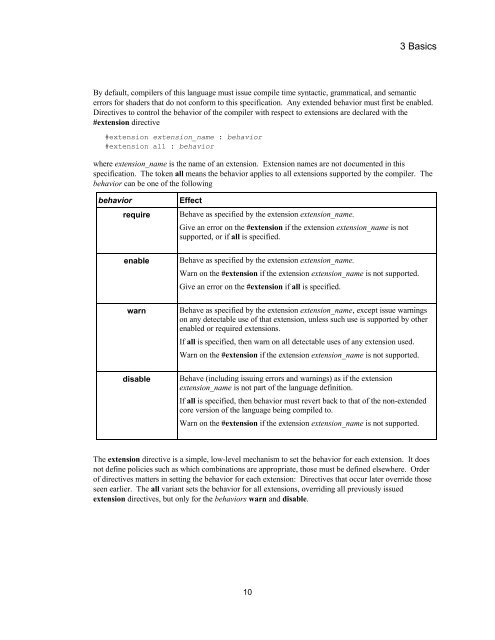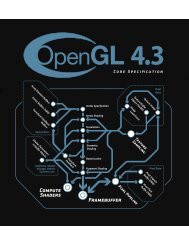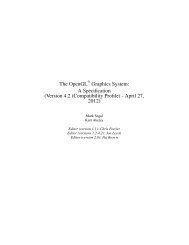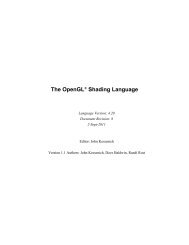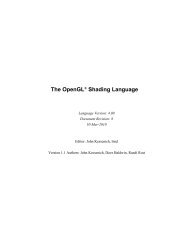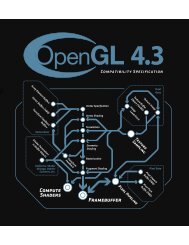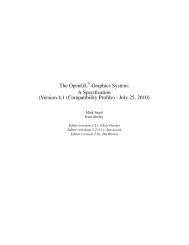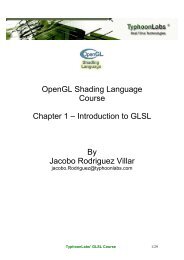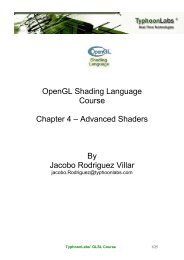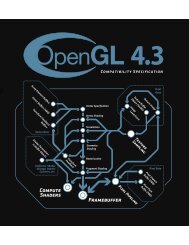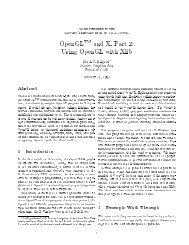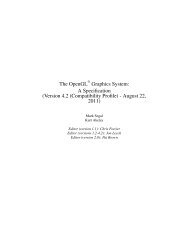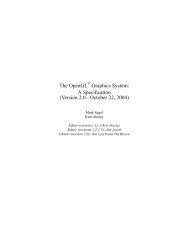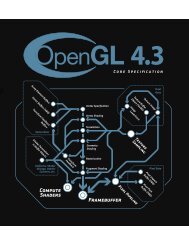Create successful ePaper yourself
Turn your PDF publications into a flip-book with our unique Google optimized e-Paper software.
3 Basics<br />
By default, compilers of this language must issue compile time syntactic, grammatical, and semantic<br />
errors for shaders that do not conform to this specification. Any extended behavior must first be enabled.<br />
Directives to control the behavior of the compiler with respect to extensions are declared with the<br />
#extension directive<br />
#extension extension_name : behavior<br />
#extension all : behavior<br />
where extension_name is the name of an extension. Extension names are not documented in this<br />
specification. The token all means the behavior applies to all extensions supported by the compiler. The<br />
behavior can be one of the following<br />
behavior<br />
require<br />
enable<br />
warn<br />
disable<br />
Effect<br />
Behave as specified by the extension extension_name.<br />
Give an error on the #extension if the extension extension_name is not<br />
supported, or if all is specified.<br />
Behave as specified by the extension extension_name.<br />
Warn on the #extension if the extension extension_name is not supported.<br />
Give an error on the #extension if all is specified.<br />
Behave as specified by the extension extension_name, except issue warnings<br />
on any detectable use of that extension, unless such use is supported by other<br />
enabled or required extensions.<br />
If all is specified, then warn on all detectable uses of any extension used.<br />
Warn on the #extension if the extension extension_name is not supported.<br />
Behave (including issuing errors and warnings) as if the extension<br />
extension_name is not part of the language definition.<br />
If all is specified, then behavior must revert back to that of the non-extended<br />
core version of the language being compiled to.<br />
Warn on the #extension if the extension extension_name is not supported.<br />
The extension directive is a simple, low-level mechanism to set the behavior for each extension. It does<br />
not define policies such as which combinations are appropriate, those must be defined elsewhere. Order<br />
of directives matters in setting the behavior for each extension: Directives that occur later override those<br />
seen earlier. The all variant sets the behavior for all extensions, overriding all previously issued<br />
extension directives, but only for the behaviors warn and disable.<br />
10


